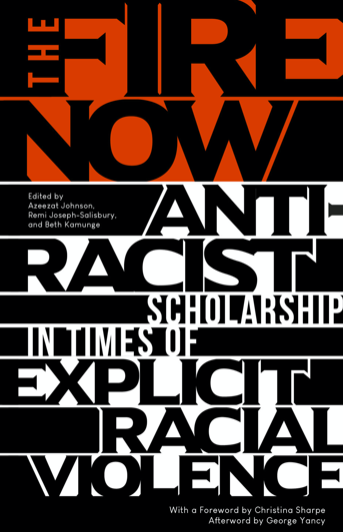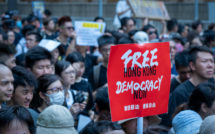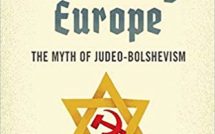
The Fire Now: Anti-Racist Scholarship in Times of Explicit Racial Violence edited by Azeetat Johnson, Remi Joseph-Salisbury, and Beth Kamunge

The title of The Fire Now: Anti-Racist Scholarship in Times of Explicit Racial Violence is a direct reference to The Fire Next Time, the famed and widely circulated 1963 essay by James Baldwin, but another reference is The Fire this Time: A New Generation Speaks about Race, edited by Jesmyn Ward in 2016. If both previous publications came out of the United States, the present edited volume comes out of Britain. According to Azeetat Johnson, Remi Joseph-Salisbury, and Beth Kamunge, the editors of The Fire Now, there are two possible ways to interpret the image of the fire contained in the title. One can view fire as a means of destruction or as a means of cleansing. In reality, fire can be both at the same time. Each contribution demonstrates the necessity for each: the destruction of systemic toxicity, injustice, violence and racism, past and present; global cleansing and healing of the mind so as to globally and collectively imagine new societies. The power of imagination is at the base of the envisioned liberation. Imagination is the catalyst for what The Fire Now consistently demands: Immediate social change.
The mention of “love and friendship” is a rare feature in a scholarly publication. Yet, these two noble and lofty feelings make their appearance in the foreword to The Fire Now. Love and friendship, to which “tenderness” is added later on, are used by the three editors of this collective project, as the core for their “continuous dialoguing.” Love, friendship, and tenderness also fuel their “ongoing process of reflexivity.” Theirs and that of the contributors to this publication. The book does not shy away from an unapologetic intimacy. This is “a personal book, written to and for those we love.” This deep anchoring within the global community of populations most impacted and currently suffering from increased vulnerability does not preclude anyone else from understanding and assessing the stakes. Justice and full humanity for all is what is at stake. Those most deprived of each have something to teach to those who are not.
Love, friendship, and tenderness appear as much needed in the times The Fire Now describes. These are dark times. Times of increased hostility toward populations of color in Britain and the United States. The list could seem infinite. To be found among its highlights: the 2017 Greenfell Tower fire, in London, that caused over seventy deaths; the much-too-long deprivation for clean water in the city of Flint, Michigan, in the United States, or the assault on ancestral land at Standing Rock; the assault on Black Lives. This hostility also implies increased vulnerability for those most exposed to foreseeable although unheeded dramatic climate changes. The most vulnerable populations will always be hit first and the hardest. During the last hurricane season, Dorian hit the Bahamas in an unprecedented manner. It is a scientific fact: the Caribbean are scheduled to go under water.
Therefore, in The Fire Now, the present is characterized as of “explicit racial violence”, which stresses the urgency to address it scholarly, collectively, and globally. Indeed, two significant events are recognized as the key points that triggered this urgent need to “take stock”, “bear witness,” “speak back,” and “undertake anti-racist work:” the election of Donald Trump as the 45th President of the United States and Britain’s vote on Brexit. However, the domestic impact of those two political events of significant importance does go beyond the sole United States and United Kingdom. Indeed, the very conditions that favored the election of Donald Trump and Brexit are not to be confined to the countries aforementioned. The contributors of this edited volume insist on the role of the US’s status as “empire” and “global power” to be fully considered. As such, a deep pondering over “the politics of spatiality” and the impact of Western policies in “other geo-political contexts” needs to be undertaken as well. This reflection needs to take place even—if not particularly—by those who are marginalized in the West and yet cannot grow oblivious to the fact that they are still a part of it, which in itself constitutes a privilege.
In the context of dark times, increased vulnerability and stigmatization of populations of color, this work makes unabashed claim for urgency while it emphasizes the role to be played by the possibility and imagination of change. Imagination is presented as the key to foster change. Social change. Because, social change needs to be imagined before it can come into being. The urgency of the present times is precisely what makes all the more necessary, precious, but most importantly arduous the possible future and the management of the unbearable period. To confront the difficulty of the current experiences: academically, politically, racially, socially, economically, physically, psychologically, and health wise, one needs to take a global, intersectional approach and seek and develop international networks and solidarities. Indeed, both anti-blackness and white supremacy work globally: that is nationally, internationally, and transnationally. This accounts for this volume’s deep anchoring in the British context. However, it also contains analyses from the United States, Kenya, and Canada. This also explains the variety in the book’s contributions in terms of the disciplines and spaces represented (academic institutions, activist, organizing, and meeting).
The Fire Now comes out of a collective project initiated by the Critical Race and Ethnicities Network (CREN). CREN was organized to foster intersectional anti-racist conversations within academic institutions. The latter were understood as fully involved in the systemic suppression and limitation of the circulation of thought and knowledge produced by scholars, activist and students of color within academic institutions. In that context, women of color constitute the most marginalized group. Envisioned as a safe space countering the “explicit and implied” hostility of British academia, CREN offered and nurtured a forum in which debates and discussions could flow, uninterrupted. Reflections around the status of witness held by academics and activists; the nature of the object of their witnessing; finally, the address and the purpose of their witnessing all clearly appeared as the main issues the collective seemed to be interested in. Hence the single question raised, grappled with, debated, and answered in the present book: What to do in the “midst of brutality— quotidian, spectacular, cellular, organised and ongoing—against Black and Blackened everywhere in the world”? The book’s central argument is clear, direct: reflection should serve as the foundation for action. Scholarship, its production and circulation, is presented here as being at the hand of committed anti-racists. Scholarship and its production constitute the weapons resorted to so as to achieve total liberation.
A product of CREN reflections, The Fire Now, is composed of a rich variety of contributions. Some are interdisciplinary, others internationalist, all included in chapters adopting a mosaic of approaches, perspectives, angles of approach and positions. This collection of essays also offers a refreshing diversity in the voices and formats it offers as contributions by scholars, activists, and artists are gathered in it, along with enlightening email exchanges and highly relevant analyses of Twitter posts. Welcome to the new millennium and the age of social media. The contributors acknowledge and prove keenly aware of their own limitations, particularly when it comes to gender and sexuality; the justice and prison system; access to (healthy) food; climate change or their Western bias. But, their hope is that future publications can add to and improve the conversation this edited volume is starting, or rather continuing. Intersectionality, in all its complexity remains difficult to handle. Although they appear as highly concerned and interested in the present, the editors and contributors whose work is included in this volume display a substantial knowledge of past thinkers, activists and scholars of the Atlantic African Diaspora. Those include W.E.B. DuBois, Sylvia Winter, Walter Rodney, Claudia Jones, George Padmore, and Black feminists Akasha Gloria T. Hull, Patricia Bell-Scott and Barbara Smith. Those past figures have to be remembered. Indeed, past systems of oppression and resistance to them should teach present-day antiracist actions as well as inform the strategies to be thought out. The current, ongoing antiracist strategies of resistance need to pervade and radically transform all parts of society. Thus, faculty and students of color are encouraged to recognize academia as a space simultaneously producing, reproducing and even reinforcing white supremacy. As such, they are face with the dilemma of “complying to or subverting” white supremacy operating within it. Academia and the rest of society need to reexamine the notion of legitimacy and make sufficient room for the “multiplicities of identities.” A genuine articulation of intersectionality, for example, needs to grapple with race, islamophobia, sexism, and ableism.
But perhaps most importantly, the responsibility and the commitment of faculty, students, and activists of color stand supreme. The fire is now, after all.
Maboula Soumahoro is Associate Professor in the English Department of the University of Tours, France. She specializes in U.S., African American, and Africana Studies (the Americas and Europe). She is the author of Le Triangle et l’Hexagone. Réflexions sur une identité noire, Paris: Editions La Découverte, February 2020.
The Fire Now: Anti-Racist Scholarship in Times of Explicit Racial Violence
Edited by Azeetat Johnson, Remi Joseph-Salisbury, and Beth Kamunge
Publisher: Zed Books
Harcover/304 pages/2018
ISBN: 9781786993793




